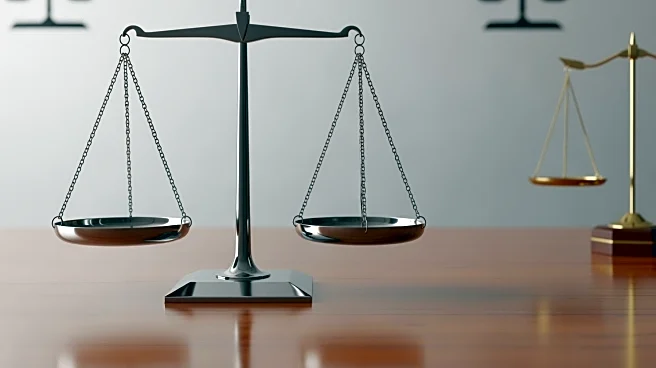What's Happening?
A Business Court judge has ruled against granting a stay in a civil litigation case where defendants sought protection against self-incrimination. The defendants argued that they were innocent in the civil suit and claimed that the plaintiffs had engaged
in misconduct, including sending a defamatory letter to the FBI accusing them of criminal behavior. Despite these claims, the judge found the defendants' concerns speculative, noting that no FBI investigation or criminal case currently exists. The court emphasized that public and judicial interests favor proceeding with the case, as the defendants' burden was deemed speculative and the plaintiffs' interests substantial.
Why It's Important?
This decision underscores the court's stance on balancing the rights of defendants against the need for judicial efficiency and public interest. By denying the stay, the court is prioritizing the resolution of civil matters over speculative criminal concerns, which could set a precedent for similar cases. This ruling may impact how defendants approach civil litigation when potential criminal implications are involved, influencing legal strategies and the timing of civil proceedings. The decision also highlights the importance of concrete evidence in claims of self-incrimination, potentially affecting future cases where defendants seek similar protections.
What's Next?
The case will proceed in the Business Court, with the defendants required to continue participating in the civil litigation despite their concerns about self-incrimination. The plaintiffs will likely continue to press their claims, potentially leading to further legal battles if new evidence or developments arise. The court's decision may prompt defendants in other cases to reassess their strategies when facing civil suits with potential criminal implications, possibly leading to more cautious approaches in future litigation.
Beyond the Headlines
The ruling may have broader implications for the legal community, particularly in how courts handle cases involving overlapping civil and criminal issues. It raises questions about the balance between protecting individual rights and ensuring the efficient administration of justice. Legal experts may debate the ethical considerations of proceeding with civil cases when criminal investigations are possible but not yet initiated, potentially influencing future judicial decisions and legal reforms.

















